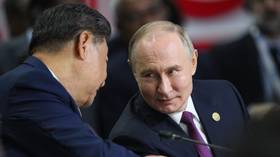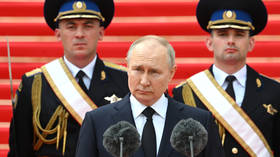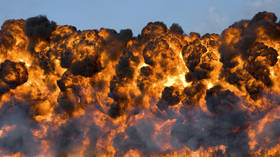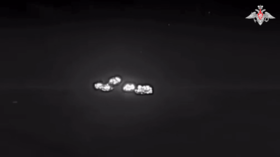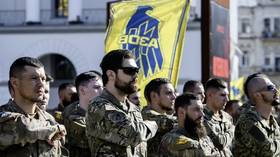I include this article because it mentions wars in recent history about which I know nothing. In discussing the Peoples Liberation Army, that includes the nave, and the article does not include China's aggression against the Philippines in the South China Sea. Still, it is a short article that opens possible research into many little known battle spheres. I hope you find it informative. Hugh Murray
Think China is a ‘nation that can’t fight’? Think again
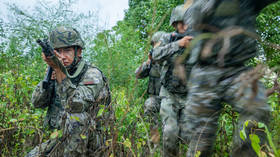
The internet is flooded with quotes attributed to Chinese philosophers. Who hasn’t seen a meme with a “Confucius” saying or heard of the so-called “ancient Chinese curse” about living in interesting times? In reality, 99% of these quotations are fake, reflecting Western projections of Chinese wisdom rather than its reality. Yet one saying – “good iron does not make nails; good men do not make soldiers” – is genuinely Chinese. Known since at least the Song Dynasty (late 10th – early 12th century), it remains in use today, much to the irritation of China’s People’s Liberation Army (PLA) political officers.
Globally, the proverb helped fuel a myth that China “never liked to fight” and “always lost wars.” Yet the absurdity of this view is clear if one simply looks at the world map today. Nevertheless, it persists – and now, as China becomes a true superpower, this misconception could have dangerous consequences for the world.
Historical roots
To understand the proverb’s origin, we must look at the structure of the Song Dynasty's military. Early Chinese empires such as the Han relied on conscription, but over time, mercenary armies became the norm. Chronic shortages of volunteers were addressed by drafting criminals and debtors – turning armies into collections of society’s “undesirables.”
Officers, by contrast, came from privileged classes who passed imperial military exams. These exams, though less prestigious than their civilian counterparts, still conferred status. But it is crucial to remember that the civil bureaucracy was tiny, making its officials extraordinarily powerful, while rank-and-file soldiers remained socially degraded.
This pattern closely resembled Europe in the 17th and 18th centuries: a privileged officer corps and low-status, often criminal, enlisted men. Wellington’s remark in 1811 that “only men of the worst character enter the regular service” could have been said about China too. Military service was a punishment; soldiers were feared more for their misbehavior than admired for their valor. In that context, the “men and nails” proverb made perfect sense – and was hardly unique to China.
The modern Western glorification of the soldier – tied to mass conscription, nationalism, and industrial militarism – only emerged in the 19th century. In China, where social and political backwardness lingered longer, this transformation began only in the 20th century with enormous difficulty.
China’s true military record
A regular, centrally commanded, professionally trained army – the PLA – was only created in the 1950s, after the Communist victory. Almost immediately, the PLA demonstrated its effectiveness by intervening in the Korean War, inflicting a series of defeats on UN forces and saving North Korea. The Soviet Union, by contrast, limited itself to sending small air and anti-aircraft units.
In 1962, China launched a well-timed, surprise offensive against India, achieving a quick victory and territorial gains. Beijing struck while the world was distracted by the Cuban Missile Crisis. Throughout the 1960s, China also provided major military support to North Vietnam, at times deploying up to 170,000 troops – considerably more than the Soviet Union ever committed.
In 1969, Beijing provoked and fought small border clashes with the USSR – a calculated show of strength aimed at achieving key foreign and domestic policy goals, including paving the way for rapprochement with the United States. The military component was minor; the political impact was enormous.
Meanwhile, the PLA fought a prolonged counterinsurgency campaign in Tibet, defeating US- and Indian-backed guerrillas by the early 1970s. It also engaged in recurring military action against Taiwan, demonstrating clear superiority across the Taiwan Strait.
Risk-taking and adaptation
In February 1979, China launched an invasion of Vietnam, a newly minted Soviet ally. This bold action risked conflict with a nuclear superpower. The campaign exposed PLA shortcomings but also demonstrated its resilience, willingness to absorb heavy casualties, and ability to carry out major offensives.
While Vietnam held out thanks to Soviet military threats against China, Beijing’s ability to act – and to compel both Moscow and Washington to recalibrate their policies – was a major achievement.
The Sino-Vietnamese conflict evolved into a decade-long border war marked by artillery duels, naval clashes, and raids, culminating in China’s decisive naval victory in the Spratly Islands in 1988.
Comparing China’s record from 1949-1989 to the Soviet Union’s reveals a striking fact: China used military force more frequently, and arguably more effectively, than the USSR during the Cold War.
Modernization and patience
After Mao’s death, the PLA underwent profound modernization, both politically and socially. Military service gained prestige. During the Cultural Revolution, the army became a pillar of governance and society. Yet, China’s foreign policy turned defensive from the 1990s onward – not from weakness, but from strategic calculation.
After the Soviet collapse, China faced a unipolar world dominated by the United States. Survival and development required patience. Beijing avoided major military engagements for nearly 30 years, instead focusing on economic and technological breakthroughs. Shows of force were reserved for defending “core interests,” such as during the 1995-1996 Taiwan Strait Crisis.
By the late 2010s, the global environment had changed. American dominance weakened. The unipolar order eroded. China’s rise, both economic and military, became undeniable.
Beijing’s gradual reassertion of military power has been cautious but unmistakable: expanding operational reach, forging military partnerships, and conducting exercises in potential conflict zones.
A dangerous myth
The myth of Chinese military incompetence is not only historically false; it is potentially catastrophic. In the past, underestimating China’s capabilities led adversaries to miscalculate – to their great cost. Today, as China carefully prepares for its first major combat operations in decades, its adversaries would do well to shed illusions and study history more carefully.
Beijing will not rush into war. It will act only under conditions it judges favorable and under circumstances it has painstakingly prepared. But make no mistake: when it acts, China will not be the passive, incompetent power that outdated stereotypes imagine.
This article was first published by the magazine Profile and was translated and edited by the RT team.
